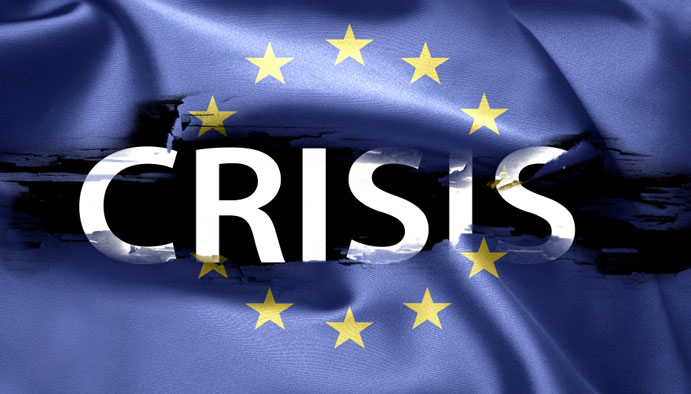
From Thomas Wright, the Washington Quarterly: Western Europe has been an integral part of the U.S.-led international order since its foundation in the years after World War II. NATO’s greatest role was undoubtedly in waging a successful cold war against the Soviet Union while consolidating democracy in Western Europe, but it continues to play a central part in international politics. In recent years, NATO has spearheaded interventions in the Balkans, Afghanistan, and North Africa. Politically and diplomatically, Europe and the United States form a powerful constituency for openness, democracy, and human rights on the world stage, even if they occasionally disagree about how to pursue these goals.
If Europe fails, the transatlantic pillar of the international order would begin to crumble. In the relatively benign scenario of bare survival, Europe would turn inward as it became reoccupied politically, economically, and diplomatically with tackling its own existential crisis. Under such conditions, it is hard to see how Europeans would be willing to play a truly global role in world affairs. Even if they did, military budgets would continue to drop under the constraints of austerity, and the capabilities gap with the United States would widen. Europe’s soft power, which optimists have long pointed to as the European Union’s real contribution to world politics, would be decimated as European-style integration became a warning to be avoided, not a model to be emulated.
If failure takes the form of a disorderly collapse, the outcome would be immeasurably worse. As Europe reels from the shock of historic proportions, the United States would have to cope with a rapidly worsening geopolitical climate, particularly in the Middle East, North Africa, and China, but also in a number of fragile states around the world. The demand for international leadership and crisis management would skyrocket at precisely the time when a pillar of the West is in a state of collapse. The United States would be compelled to go it alone while Americans would undoubtedly be angered and frustrated at what they would accurately perceive as a European crisis that could have been avoided had better decisions been taken earlier on. . . .
Failure in Europe would shake the world. Whether the reverberations are modest or seismic would depend on whether the failure is within existing structures or shatters them beyond repair. The former scenario would ensure Europe becomes less relevant, a coarsening of politics inside the continent, less effective governance over global issues, and the continued relative rise of the rest.
This would be contrary to the interests of the United States and the European Union, but it pales in comparison to the effects of a disorderly collapse which could include a global depression, an end to institutionalized cooperation in Europe, rising populism, potential crises inside China and Middle Eastern countries, and the end of the transatlantic alliance. Although the gap between these two scenarios is great, the difference in the probability of each may be quite small, resting on key political decisions and the impact of various shocks.
Thomas Wright is a fellow with the Managing Global Order at the Brookings Institution. (graphic: ValueWalk)
Image: valuewalk%208%2022%2012%20What%20if%20Europe%20fails.jpg
